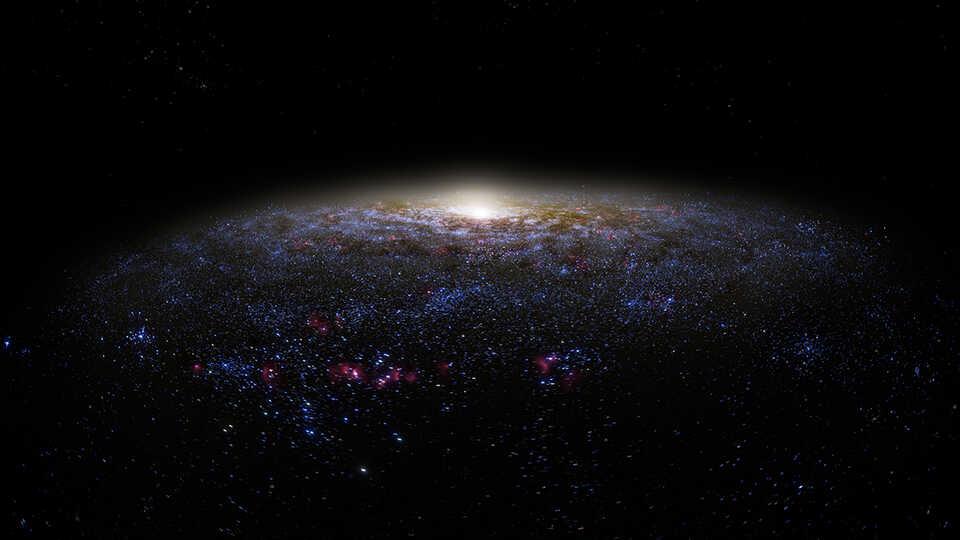Going Forward in Chaos, Part 1
An Anchor for Your Soul
By Bob Benson, President/CEO CCBA
Emotions, fear, uncertainty of the future, change, anger, confusion, depression, and even grief, caused by COVID, corruption, and a lack of wise leadership of the US are sweeping the country and causing Chaos in our business, family, and lives.
“You’ve got to keep on dancing!”
Author unknown
“Grief,” you say? Yes, without knowing it, millions of Americans are experiencing grief from the loss of the pride of country, safety, security, freedom, and protection most of us grew up with and took for granted. This creates problems for your company, health, and peace of mind.
No matter what is happening in the world, “you’ve got to keep on dancing” to fulfill responsibilities and plans with less or minimal stress. How does one do that effectively and with a sense of peace and pleasure? You need an anchor for your soul (your emotional system) that leaves you feeling safe and secure. Even in chaos. Many use money, self-confidence, or power (control) as an anchor. But that only works if they continue to have it.
I am writing this series of articles to help people obtain a firm anchor for their soul while Going Forward in Chaos.
The Anchor
There is a book where you can get everything you need to know to obtain the Anchor for your soul. In 2012, I read this book and realized my soul was never at rest or at peace. Instantly, I realized I didn’t have an anchor for my soul. Amazingly, I had read this section of the book several times and understood it intellectually but never really had “the light come on.” What was different this time? I decided to believe what it said and live my life as though I believed it. Like anything new, it took repetition, application, and time to make it a part of my daily life.
“The first responsibility of leadership is to define reality.”
MaxDepree
What did I read? “People swear by someone greater than themselves, and the oath confirms what is said and puts an end to all argument. Because God wanted to make the unchanging nature of his purpose very clear to the heirs of what was promised, he confirmed it with an oath. God did this so that, by two unchangeable things in which it is impossible for God to lie, we who have fled to take hold of the hope set before us may be greatly encouraged. We have this hope as an anchor for the soul, firm and secure.” The book is the Bible.
That raises questions for some, is there really a God or, if you prefer, a higher power? Is God interested in my daily life? By studying the universe, its growth, and its beginning, scientist have concluded there had to be some form of power outside of our universe that started it.
In The Case for Miracles, by Lee Strobel, a New York Times bestselling author, Strobel investigates evidence for the supernatural. Lee was an award-winning legal editor of The Chicago Tribune, a skillful investigative journalist and atheist who set out to prove that there was no God. The evidence he found changed his life forever and motivated him to author four bestselling books. In his recent book, The Case for Miracles, Strobel is motivated by skeptic Michael Shermer of Skeptic magazine, who he describes as a skeptic’s skeptic. This is a must-read book, laying out the case for miracles with excellence.
In chapter 9, The Astonishing Miracle of Creation, Strobel interviews physicist Dr. Michael G. Strauss, a Physics Professor at the University of Oklahoma, author, and speaker on the universe. He has done research at the Stanford Linear Accelerator, the Fermi National Accelerator Laboratory, and now at CERN. Through much of his career, he has studied the interaction between quarks and gluons and the theory of Quantum Chromodynamics. More recently he has been studying the properties of the Higgs Boson and the heaviest known fundamental particle, the top quark. Following is some information from that interview.
“To this day, the theistic consequences of having a beginning to the universe are readily apparent even to atheists. In his bestseller, A Brief History of Time, theoretical physicist Stephen Hawking wrote, ‘So long as the universe had a beginning, we could suppose it had a creator.’ I asked Strauss, ‘What compelled scientists to conclude that the universe had a beginning–even though some of them had to be dragged kicking and screaming to that conclusion?'”

“‘Back in the 1920s, the Russian mathematician Alexander Friedman and the Belgium astronomer George Lemaire used Einstein’s theories to formulate a model showing that the universe was expanding’ he said. ‘So, if you play the tape of the universe backward, it shrinks down to…’ ‘The big bang,’ I offered.”
“‘Yes, that was the term that British astronomer Fred Hoyle came up with. He was an outspoken atheist who was being derogatory and poking fun at the idea, but the term stuck.'”
“I asked Strauss, ‘What were the scientific discoveries that confirmed the big bang theory?’ ‘There were three of them’ he replied.
“First, in 1929, the American astronomer Edwin Hubble discovered the so-called ‘red shift’ in the light coming from distant galaxies, which is the result of galaxies literally flying apart from each other at enormous speeds. So this showed that our universe is rapidly expanding.”
“Second, in 1964, Arno Penzias and Robert Wilson measured the cosmic background microwave radiation, which showed that the leftover heat from the big bang was minus 450 degrees Fahrenheit. This is exactly what we would expect if the big bang occurred.”
“The third discovery involves the origin of light elements. Heavier elements formed later in stars and were expelled into space by supernovae, but very elements like hydrogen and helium had to be forged in a much hotter environment like the big bang. When we measure the amount of these two elements in the universe, we find they are precisely what the theory predicted to within one part in ten thousand.'”
“‘The case, then, is airtight to you?’ I asked. ‘Given the evidence, in my opinion not believing in the big bang is like believing the Earth is flat. To me, the data is that strong. The big bang is the origin of everything we know—space, time, matter, and energy.’”
“I can see the nuances of subtleties and intricacies of nature in a way that others can’t. and Invariably, they point me toward one conclusion; the God hypothesis has no competitors.”
Dr. Michael G. Strauss
“William Lane Craig is one of many philosophers who offers various arguments for the existence of God. But if you count the number of articles published in philosophy journals in recent years, you’ll find more discussion about Craig’s Kalam cosmological argument than any other contemporary defense of theism. The Cambridge Companion to Atheism says, ‘Theist and atheist alike cannot leave Craig’s argument alone.’ …His reasoning is summarized in three steps:
1. Whatever begins to exist has a cause.
2. The universe began to exist.
3. Therefore, the universe has a cause.
“I asked Strauss, ‘What’s your assessment of the Kalam argument?’ ‘It’s extremely strong,’ he said, ‘and we know from the evidence that the universe did come into existence…then the conclusion inexorably follows: the universe has a cause…’ ‘Everything tells us there was a real beginning. Everything else is a mere possibility, with no observational or experimental evidence to back it up.'”
In Chapter 10, Our Miraculous Universe and Planet, Dr. Strauss continues his documentation of the existence of God.
“Walk outside tonight and look up at the universe. They Created it!!! They love you and want a close relationship with you.”
“The incredible precision of the universe and our planet is not just intriguing, but it’s compelling evidence for a miracle-working Designer. ‘Over the last five decades, physicists have discovered that the numbers which govern the operation of the universe are calibrated with mind-boggling precision so intelligent life can exist,’ he said… ‘And when I say mind-boggling, I’m not exaggerating,’ he added with a smile. ‘Picture a control board with a hundred different dials and knobs, each representing a different parameter of physic. If you turn any of them just slightly to the left or right–poof!'”
(My note: Strauss gives 13 pages of scientific documentation and proof of the existence of God. Following are key conclusions.)
“‘Let’s go back to what I know for a fact as a scientist. I know there’s one universe…which is incredibly calibrated in a way that defies naturalistic explanation, and there’s a highly improbable planet whose unlikely condition allows us to exist. To me, all that begs for a divine explanation.’”
I can see the nuances of subtleties and intricacies of nature in a way that others can’t. And invariably, they point me toward one conclusion; the God hypothesis has no competitors.”
The Soul of the Artist. “I asked Strauss, ‘If God is the most likely explanation for our universe and planet then what can we logically deduce about him from the scientific evidence?’ ‘First…he must be transcendent because he exists apart from his creation. Second, he must be immaterial or spirit, since he existed before the physical world. Third, he must be time-less or eternal, since he existed before the physical world. Fourth, he must be smart, given the fact that the big bang was not some chaotic event but was masterfully finely tuned. Sixth, he must be personal, because a decision had to be made to create. Seventh, he must be creative–I mean, just look at the wonders of the universe. and eighth, he must be caring, because he so purposefully crafted a habitat for us…’”
“’The artist looks at a painting and says, ‘These brushstrokes tell me about the mood of the painter.’ ‘Frankly, I look at a painting and say, ‘Huh, that’s nice.’ To me, it’s just color on canvas…'”
“As a physicist, I know that virtual particles inside of protons have a mass that’s finely tuned so that I can exist. That tells me something about the mood of the Creator–he’s both ingenious and caring. Why else would he cause all of creation accrue to our benefit?”
“I can’t see the deeper realities that an artist can. But I’m privileged to be a scientist. I can see the nuances of subtleties and intricacies of nature in a way that others can’t. And invariably, they point me toward one conclusion; the God hypothesis has no competitors.”
Application
“God did this so that by two unchangeable things in which it is impossible for God to lie, we who have fled to take hold of the hope offered to us may be greatly encouraged. We have this hope as an anchor for the soul, firm and secure.”
Hebrews 6
How do you take hold of this promise from God?
First, you have to believe there is a higher power, which the Bible calls God. If you don’t already believe that, read Lee Strobel’s book. It makes it clear that God exists. Also, strongly consider reading the Bible, starting with the book of John. It is short, and The Lord Jesus Christ, God’s Son, talks a lot about himself, like why He came to earth. He also talks about his father, God.
Second, you have to believe He is a personal God. That is, He interfaces with mankind on earth. He did not just create the Universe, earth with plant, animal, and human life, and then abandon His creation. He is a relational being and loves humans who He “made in His image. In fact, in 2 Peter, the Bible tells us that “God has given us everything we need for life and godliness.” That is, how to walk in his image and ways. John, chapter 10, Jesus says, “I have come that they might have life, and have it to the full.” In Part II of this series, I will explain what that means and how it is possible.
But in the meantime, get personal with them by praying to them (talking to them about things in your life you are grateful for, your needs, and for direction). Consider this reality as you pray. God the Father and Christ created the universe and mankind. Christ is Lord and King over their creation. The Bible says all authority in heaven and on earth has been given to Him. They have enormous power beyond our understanding. Walk outside tonight and look up at the universe. They created it!!! They love you and want a close relationship with you.
Third, believing in God and His son Jesus does not only mean just intellectually believing in them. It means you demonstrate that belief by following their teaching and commands with action by implementing them. Even many Christians who go to church regularly and learn a lot of information about the Bible, God, and Jesus Christ, don’t appear to understand this. So, they miss enjoying the benefits of really knowing God and the “full life” Jesus refers to in John chapter 10. The difference is, for example, when you go to buy an automobile you look at and research different brands. But you demonstrate your belief and trust in one by purchasing it.
Notice that Hebrews says, “we who have fled to take hold of the hope…” That is, we hold to His teachings by acting on them, not just learn about them.
“The Promise”, “This Hope” & “Everything We Need”
In PART II of this series, Everything You Need, we will outline my understanding of what Peter means by “God has given us everything we need for life” and how it ties into God’s promise in Hebrews 6 and the hope we are to take hold of.
The 15 Dynamics of Building a Cash Cow
I have not forgotten about the 15 Dynamics of Building a Cash Cow. There will continue to be insights into them in this series of articles. Following is a financial insight from the Bible.
“You may say to yourself, “My power and the strength of my hands have produced this wealth for me.” But remember the Lord your God, for it is he who gives you the ability to produce wealth, and so confirms his covenant, which he swore to your ancestors, as it is today.”
THE LORD BE WITH YOU AND BLESS YOU!

